Where 5th District special election candidates stand on the issues
Seven candidates qualified to be on the ballot to complete Congressman John Lewis’ term.
The Sept. 29 special election ballot for Georgia's 5th District will have all the candidates on the same ballot regardless of party affiliation.
The election will help decide who finishes Lewis' term, which ends on Jan. 3. If none of the candidates wins a majority, the top two will compete in a runoff scheduled for Dec. 1.
This special election is separate from the one in November for a full two-year term. Democrats picked state Sen. Nikema Williams to replace Lewis on the ballot. She will take on Republican Angela Stanton-King.
More 5th District headlines
Meet the
Candidates
The Atlanta Journal-Constitution sent questions to the candidates about six key issues. Here are the candidates and their responses:
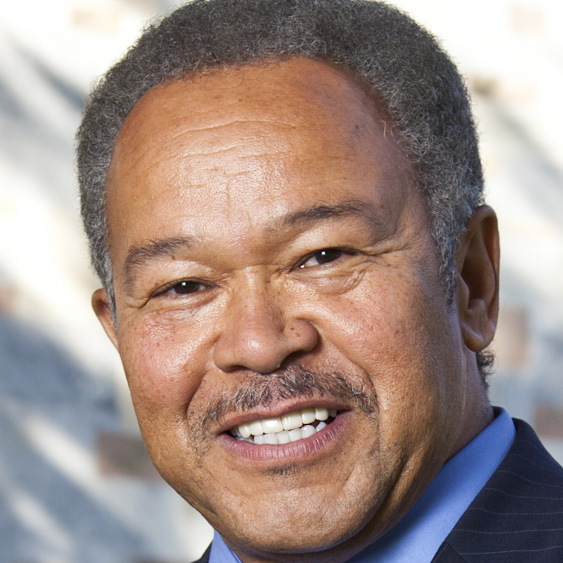
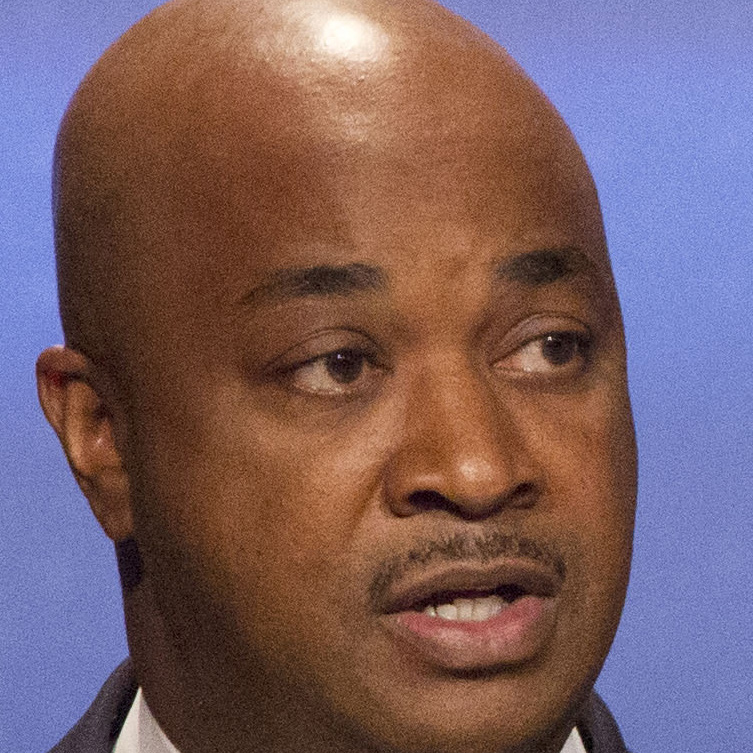
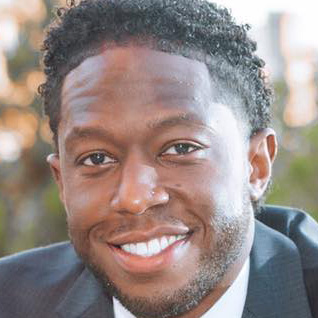
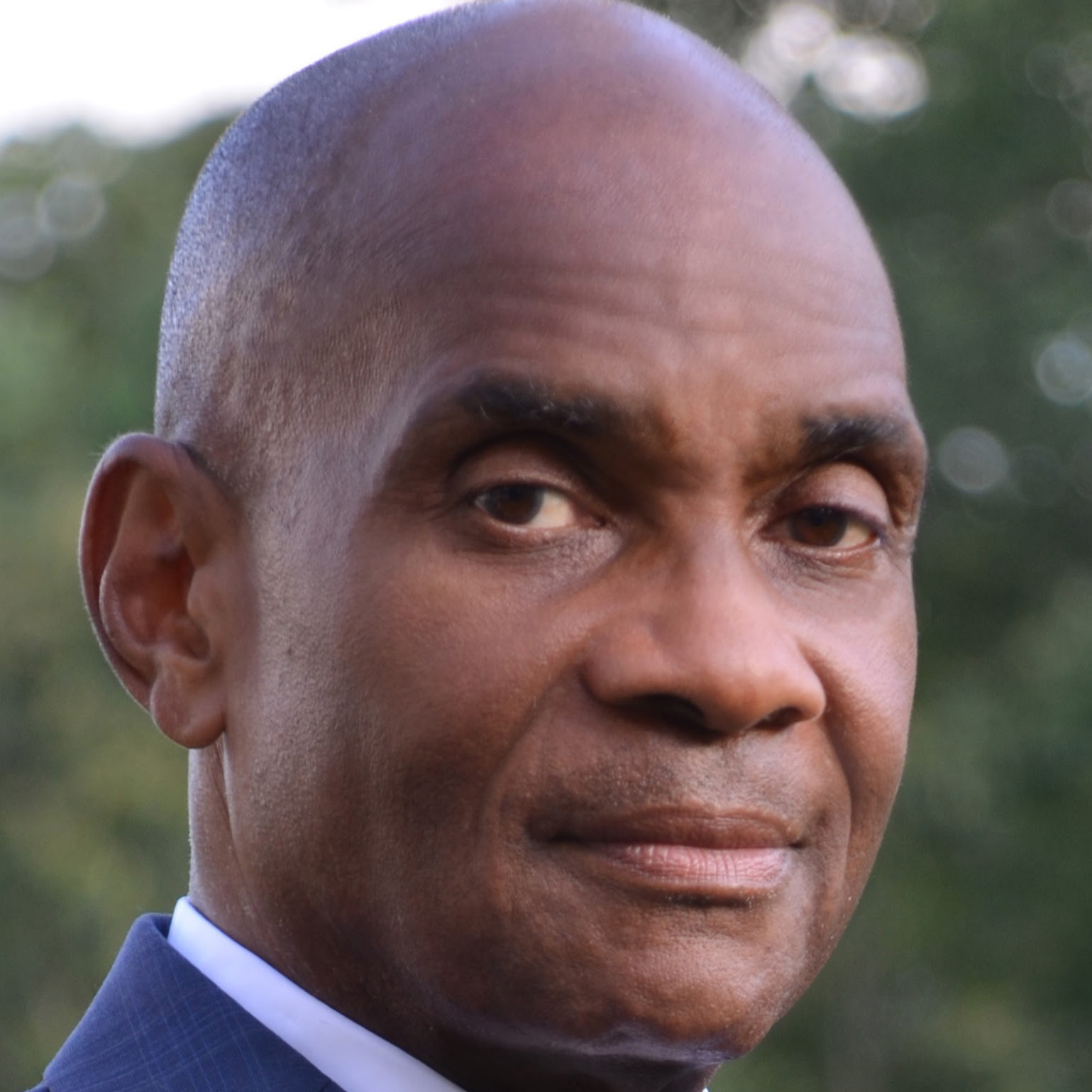

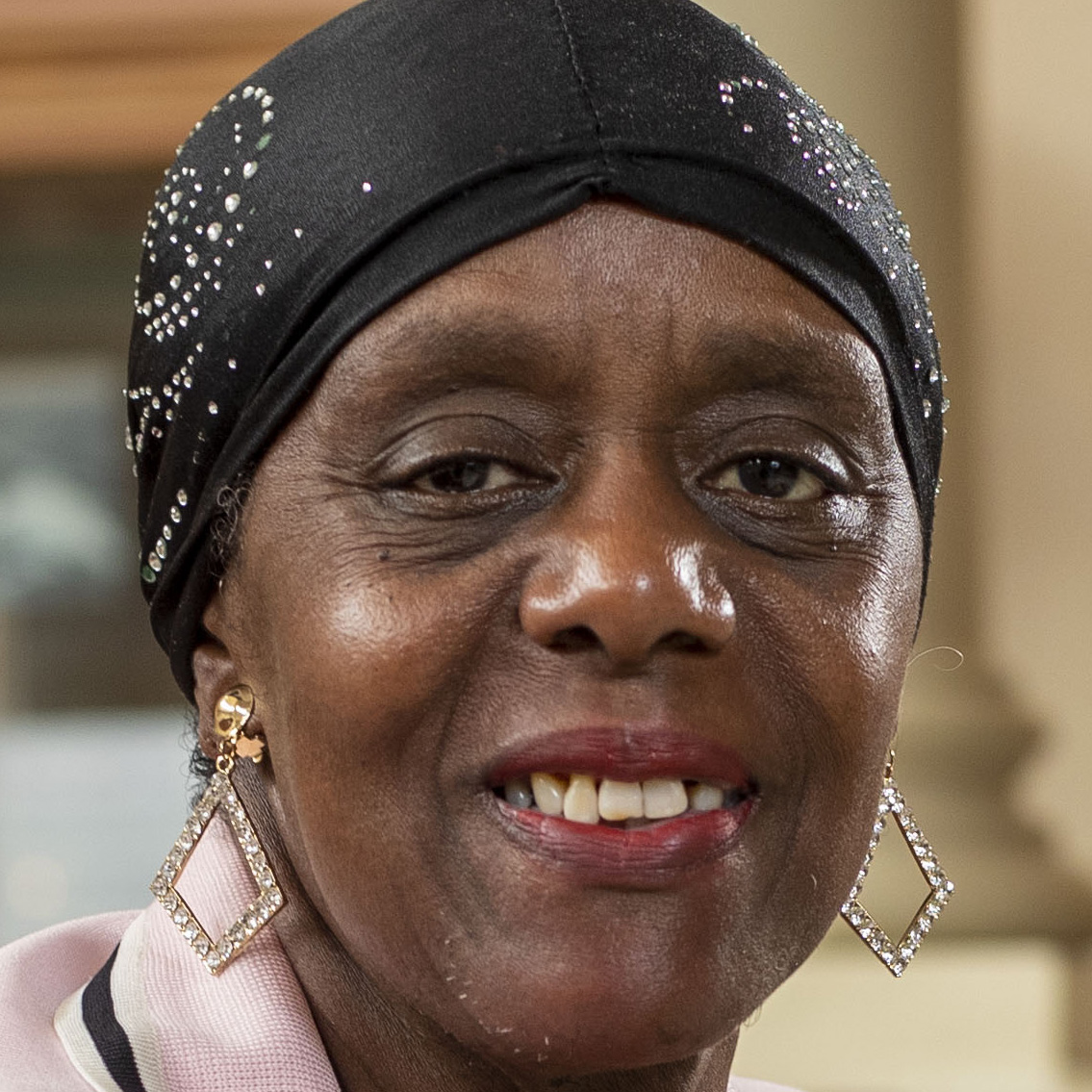
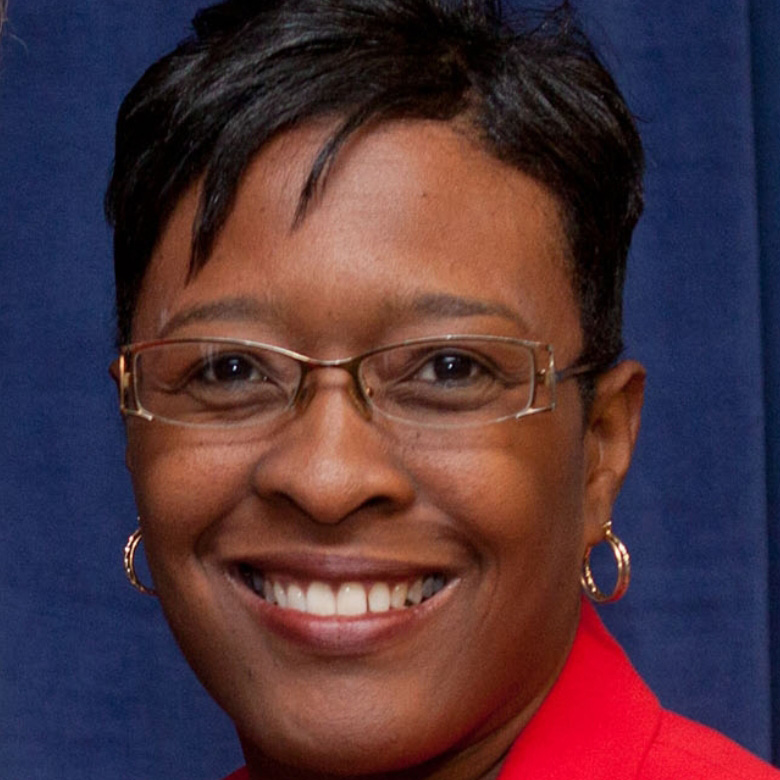



































Bio
Franklin is the former president of Morehouse College and theology professor at Emory University. He is ordained in two Christian denominations.
Bio
Hall is a consultant. He is a former Atlanta city councilman and Atlanta Public Schools board member who ran unsuccessfully for Atlanta mayor.
Bio
Martin is a a special needs educator who unsuccessfully challenged Lewis in the June primary.
Bio
Thomas is a state representative and former member of the Atlanta City Council.
Where
DO YOU STAND

Franklin: We must mount a federally coordinated, data-driven, nationwide response to check the COVID-19 pandemic, save lives, and get America back to work safe and sound. We expect accurate information and we oppose the politicizing of public health agencies that are supported by tax dollars.
The powers of the CDC must be fully restored as the broker and clearinghouse of health information and intervention for the United States without political interference. And, while we are repairing the damage done to our domestic health infrastructure by the Trump Administration, we must support the vitality of a robust and reformed World Health Organization if we are to manage and eliminate the pandemic threat.
We support Medicaid expansion in Georgia and the extension of comprehensive coverage for post-partum care for the full year after childbirth. We will advocate to protect and improve the Affordable Care Act.
Going forward we will broaden and deepen our conversations about public health from access to healthcare and insurance to achieving and maintaining health equity, with a clear understanding of the social determinants of health.
The powers of the CDC must be fully restored as the broker and clearinghouse of health information and intervention for the United States without political interference. And, while we are repairing the damage done to our domestic health infrastructure by the Trump Administration, we must support the vitality of a robust and reformed World Health Organization if we are to manage and eliminate the pandemic threat.
We support Medicaid expansion in Georgia and the extension of comprehensive coverage for post-partum care for the full year after childbirth. We will advocate to protect and improve the Affordable Care Act.
Going forward we will broaden and deepen our conversations about public health from access to healthcare and insurance to achieving and maintaining health equity, with a clear understanding of the social determinants of health.

Hall: We need to develop a system that covers as many people as possible. That starts with protecting the ACA and fixing the flaws to make sure that there is at least a public option. Secondly, we must encourage and incentivize prevention and healthy living.

Martin: Our government and a handful of insurance companies have a monopoly as payers in our healthcare system. The Coronavirus has shown the flaws and dysfunction of our current system.
Americans pay nearly twice as much for healthcare as other high-income countries but to worse results.
Decisions on healthcare should not hinge on increasing revenue for insurance companies; instead of providing care. Healthcare should be a human right for all, with special incentives for those who already practice minimal risk behaviors and healthy living practices.
Private insurances and premium services can be provided by the free market through choice and competition. The care our families receive should not be tied to profit and greed.
What I am proposing is to completely cancel medical debt, build more hospitals and clinics, a free government option along with substantially low cost options, and increasing production on generic medicines made in the United States.
Americans pay nearly twice as much for healthcare as other high-income countries but to worse results.
Decisions on healthcare should not hinge on increasing revenue for insurance companies; instead of providing care. Healthcare should be a human right for all, with special incentives for those who already practice minimal risk behaviors and healthy living practices.
Private insurances and premium services can be provided by the free market through choice and competition. The care our families receive should not be tied to profit and greed.
What I am proposing is to completely cancel medical debt, build more hospitals and clinics, a free government option along with substantially low cost options, and increasing production on generic medicines made in the United States.

Muhammad: Make healthcare affordable by decreasing the price of care imposed by insurance companies.

Oliver: Allow for more choice in the marketplace and a change to our current insurance model similar to the Singapore Healthcare system. 1/3 the cost and better outcomes than the US.

Thomas: Stop Surprise billing, Healthcare for All, Lower Healthcare and Pharmacy cost that are affecting our families and specifically our Seniors. I am the author of the first mandated benefits in the State of Georgia requiring Insurance companies to pay for mammograms, pap smears and the prostate cancer test as a regular part of the benefit plan. Additionally placed $21 million dollars in the Budget to expand Medicaid for pregnant women. Black Women die 3 to 4 times more than any other race at Childbirth. Also gave all Firetrucks in the State of Georgia 1st Responders license. This is my specialty area of expertise.

Waites: The U.S. Healthcare system needs to be completely revamped to place patients before profits. This means we need to do a better job of regulating cost associated with healthcare. We need to first address the access, and by access, I mean insurance coverage, health services, prescription costs, and quality of care. To this end we need to embrace Medicaid Expansion, which now is more important than ever. We need to address the greed that has hospitals charging $50.00 for an aspirin, and we do this by reconstructing the healthcare model from a profit centered capitalist model to a patient centered caring model. And we must disrupt the pharmaceutical monopoly model that is raising the cost of lifesaving prescriptions.
Additionally, we need to address systemic discrimination that disproportionately impacts African Americans and working families negatively.
Additionally, we need to address systemic discrimination that disproportionately impacts African Americans and working families negatively.
Where
DO YOU STAND

Franklin: The Green New Deal is an aspirational document that includes many social reform elements as well as attempting to speak to the issue of climate change.
We support government efforts to shift to renewable energy from fossil fuels which includes protecting wetlands and limiting the expansion of oil companies into federal protected lands. We are also in favor of protecting the land rights of indigenous peoples where oil companies have tried to encroach on their ancestral homes for profit.
The auto emission standards and other environmental regulatory efforts undermined by the Trump Administration should be re-instated fully to protect our environment.
We support government efforts to shift to renewable energy from fossil fuels which includes protecting wetlands and limiting the expansion of oil companies into federal protected lands. We are also in favor of protecting the land rights of indigenous peoples where oil companies have tried to encroach on their ancestral homes for profit.
The auto emission standards and other environmental regulatory efforts undermined by the Trump Administration should be re-instated fully to protect our environment.

Hall: Climate change is real and must be addressed. I believe we must reduce greenhouse emissions. I think the details of the Green New Deal will change and I will look at the version that is before me. What I can commit to doing is supporting legislation that addresses climate change.

Martin: I support a Green New Deal (GND) that is a bit different from the GND that has already been proposed by government officials. Within my ideal environmental plan, I would propose a carbon tax on corporations that pollute excessively without penalty; within this, I would hold fossil fuel companies accountable, forcing them to find cleaner and efficient was to produce their products. I would also invest in renewable, clean energy sources, that will create millions of jobs. Additionally, end massive deforestation practices and invest in massive hemp production. Lastly, and more importantly, the implementation of a national high speed rail system in partnership with companies like Delta, which would create jobs, reduce the pollution of the travel industry, and create affordable measures of travel to all citizens.

Muhammad: The New Deal does not work in every situation, but is a positive step in the right direction.

Oliver: While I believe the Science behind climate change, massive government intervention in the marketplace is not the answer. Market innovation driven by demand for cleaner energy will help drive down carbon levels. I also support ending subsidy for fossil fuels and am a proponent of free market development of nuclear energy.

Thomas: I Support the Green New Deal and know that GLOBAL warming will affect us and future Generations.

Waites: Yes, I am in support of the Green New Deal. It is important to note the Green New Deal is only a Resolution, meaning its non-binding as does not fully address the challenges we are facing. Fact: The current administration has denied environmental science and significantly cut funding for the E.P.A. Working families across the U.S. and in Georgia demand a response to the climate change crisis that dramatically reduces greenhouse gas emissions, creates millions of good jobs, ensures environmental justice, and protects all of our communities.
Therefore, in addition to, the Green New Deal, I would advocate for the following measures to address climate reform.
Therefore, in addition to, the Green New Deal, I would advocate for the following measures to address climate reform.
- Reduce dependence on fossil fuels
- Cut gas emissions
- Create clean energy high paying jobs
- Advocating for clean water and air policy
- Working Regionally to eliminate traffic congestion (federally funded light-rail)
Where
DO YOU STAND
3. Should there be a pathway for citizenship for people who enter the U.S. illegally? If so, what should it look like?

Franklin: If estimates are accurate, then there are approximately 10.5 to 12 million undocumented immigrants in the United States. Any attempt to deport them all would be economically infeasible and imprudent when other alternatives are present.
There should be a pathway to citizenship as articulated in the proposed 2013 Immigration Bill. The plan should also include those desiring to become citizens who would normally qualify as asylum seekers or refugees who enter the United States illegally.
However, there are those among the undocumented who may not wish to become citizens. Peter Skerry of Boston College suggests an additional option “permanent non-citizen resident status” for individuals who wish to work and raise their families in the U.S. without fear of authorities.
There should be a pathway to citizenship as articulated in the proposed 2013 Immigration Bill. The plan should also include those desiring to become citizens who would normally qualify as asylum seekers or refugees who enter the United States illegally.
However, there are those among the undocumented who may not wish to become citizens. Peter Skerry of Boston College suggests an additional option “permanent non-citizen resident status” for individuals who wish to work and raise their families in the U.S. without fear of authorities.

Hall: Yes, I do for non violent residents. There are a number of ways to do it, but I believe we must tackle this issue--it is a matter of humanity, decency and the right thing to do. I also believe this is non-partisan as President Regan launched an amnesty program, President Bush put forth a pathway to citizenship and President Obama launched DACA.

Martin: Yes, I propose the "Fair Shot" Initiative. Within this notion, if a person has proven themselves to be a productive citizen within their own country and free of a criminal record, they deserve a fair shot to become citizens of the United States.

Muhammad: There should be a balanced process that is sustainable rather than a punishment-based political process.

Oliver: Yes. First I believe anyone who wants to come to the US to work should be able to, and if they want, they may apply for eventual citizenship. We should not be caging asylum seekers nor separating and detaining children. That is a human rights stain upon the US.
Build bridges, not Walls!
We are and should remain a melting pot of diversity.
Build bridges, not Walls!
We are and should remain a melting pot of diversity.

Thomas: Yes and feel that if you came as a child you should be able to stay and become a productive citizen.

Waites: Absolutely! America from the arrival of the Pilgrims has been the land of second chances for people. This should not change today. Diversity is one of the reasons America has thrived and been a force in global leadership. The 5th is one of the most diverse and progressive districts in the nation. Immigrants are a crucial part of our social and cultural fabric and our economy. But current administration’s promise to deport millions of our neighbors, friends, and colleagues has sown widespread xenophobia, fear and anxiety across the country and threatens to tear families and entire communities apart. Citizens who do not have felony charges or convictions should be given the opportunity to attain conditional residency, after a period of five years I agree with the opportunity to apply for Lawful permanent residency and then after that five years they may apply for naturalization.
Where
DO YOU STAND

Franklin: The rising cost of education has made college unaffordable for many students. Currently, students have access to free college due to the availability of academic and need-based scholarships but, regrettably, not at levels to address the need sufficiently. We need to increase education funding—above and beyond salaries—for programming, technological infrastructure, and pandemic mitigation efforts. We need federal and state governments to pass laws funding education (including post-secondary, vocational, and technical schooling) with a weighted model to work fairly for those in poor and rural areas including providing technology to bridge the digital divide and overcome cyber-segregation deepened by the current pandemic.
Closing corporate tax loopholes is the first step in more tax revenues. Secondly, crafting opportunity zone agreements to include investment in educational infrastructure (facilities, technology, etc.) frees up educational dollars for education and not educational overhead.
Closing corporate tax loopholes is the first step in more tax revenues. Secondly, crafting opportunity zone agreements to include investment in educational infrastructure (facilities, technology, etc.) frees up educational dollars for education and not educational overhead.

Hall: I believe that all should be access to higher education, especially for the trades. We need to protect the Pell Grant and other grants to make sure that they remain a tool to provide access for our low income students.

Martin: Yes! The increase in the price of tuition makes no sense. College does not guarantee a job and it ends up creating diminishing returns on investment for students. This practice is predatory. College costs should be substantially reduced, and the government should not be profiting from student loans. I believe college students on track to become doctors, lawyers, engineers, or any occupation that provides a direct contribution to society in sectors that involve a trade or specialized skill, should be afforded the opportunity to attend college for free. In order to pay for this, I would impose a 2-5% tax on all stock market trades, I would reassess the tax system and implement a value added tax system, I would also decriminalize and legalize marijuana and psilocybin mushrooms (as done in Colorado) and tax them. The combined effect of all three of these measures would provide free college and other initiatives that strengthen the safety net of Americans.

Muhammad: Paying for free college for certain students can be increased by decreasing funding for unnecessary items in the defense budget.

Oliver: No additional programs. The further intervention into the education marketplace by the federal government will only increase the cost of higher education.
We need to put decisions about education back into the hands of students/parents, teachers and the state or local governments.
We need to put decisions about education back into the hands of students/parents, teachers and the state or local governments.

Thomas: Education is our most valuable resource. It is key to crime prevention and upward mobility. Definitely we as other nations must make College accessible to its citizens.

Waites: By increasing the number of college graduates, the US will experience an increase in the labor force, reduce crime, Broaden the economy, improve our competitiveness on the international stage and significantly move forward equity in work and government. I think we pay for free college education through public Private partnerships, specifically with industries with the greatest labor needs; the use of revenue from gaming; and then through student work programs filling key roles that are necessary for the college to function, such as maintenance, and food services. I have been looking at the last dollar programs that are currently offered in Oregon, Nevada, Arkansas, New Jersey, Maryland, Tennessee, New York, Rhode Island, Delaware, Kentucky and Indiana. Last Dollar programs are scholarships, where the program pays for whatever tuition is owed after financial aid and grants.
Where
DO YOU STAND
5. How should Congress balance the need for providing more aid to help the economy with concerns about the long term impact on the national debt?

Franklin: As seen in the aftermath of WWII, America’s economy surged due to the benefits of the wartime economy. Similarly, in the fight against COVID-19, the President and Congress should enact the Defense Production Act to stimulate the economy through supporting our supply chains, the manufacturing and distribution of critical items to combat the plague, and supplement the corps of necessary workers, including postal workers, which will put jobless citizens back to work.
The net effect would be increased corporate and individual revenues translating into an increased tax base which would then be used to pay down the debt.
The net effect would be increased corporate and individual revenues translating into an increased tax base which would then be used to pay down the debt.

Hall: Our first priority is making sure that every day people are ok. Our first round of COVID stimulus money provided a one time payment to individuals and families and the majority of the money went to supporting businesses. Our economy needs both in order to function optimally and we are starting to see the impact of the imbalance. When considering the national debt, we have a lot of work to do. When we emerge from COVID impacting us the way it is currently, we will have to develop a long term plan to pay down on the debt to make sure our future generations have the ability to live, sustain and, should another pandemic hit, stay afloat.

Martin: I believe we have to recreate or redevelop the ideas that surrounds the economy and the overall well-being of the citizens. We see that corporations make billions of dollars while finding loopholes within the system to not pay taxes. This is why it is important to implement a Value Added Tax so that corporations will have to pay their fair share as every citizen does within this nation. We also need to take a look at the military budget and make substantial cuts to it as well, because much of the funding directed towards our military can be channeled towards more productive measures.

Muhammad: More aid for the economy must be focused on sustaining and expanding small businesses, rather than bailing out corporations.

Oliver: I would propose lowering spending each year on way to a balanced budget. You can start by ending the wars overseas, the drug war, and all corporate welfare.
From there we can begin to prioritize any future discretionary spending cuts.
From there we can begin to prioritize any future discretionary spending cuts.

Thomas: The debt is an issue and has been an issue for decades. Not easy to solve. Nonetheless, less pork or special interest projects would help. Nonetheless, during a Pandemic we need Government assistance. Unemployment benefits extended. Small business owners must have funding to stay in business. Stop evictions for renters and home owners. Also Support the Hero Act , which gives needed support to our frontline/essential workers.

Waites: Actions and policies of the current Administration reflect that American working families are not a priority. The fact that considerations for funding a new FBI facility and bailing out IVY league institutions before providing direct aid to working families is simply disgusting and travesty. Millions of families have been devastated by COVID19 and its economic aftermath. For this reason, I support extending additional direct aid to families and ensuring resources go directly to struggling small business owners by extending the CARES ACT Safe Harbor Act provisions in the Coronavirus Relief package through the end of the year.
Secondly, this is an opportunity to also salute and thank health care workers, educators and first-responder's by offering an additional COVID19 tax credit to all who continued to work during the height of COVID19 response efforts. If we can provide corporate welfare to fortune 500 corporations, the airline and hotel industry, the most certainly we can invest and provide a safety net to our most precious commodity American families!
Secondly, this is an opportunity to also salute and thank health care workers, educators and first-responder's by offering an additional COVID19 tax credit to all who continued to work during the height of COVID19 response efforts. If we can provide corporate welfare to fortune 500 corporations, the airline and hotel industry, the most certainly we can invest and provide a safety net to our most precious commodity American families!
Where
DO YOU STAND

Franklin: The legacy of John Lewis is the impetus for my candidacy. If elected on September 29th, I promise to speak truth to power and hold Donald Trump accountable. I will work, every single day, to pass the John Lewis Voting Rights Advancement Act. I promise to do everything possible to empower the government, especially the Centers for Disease Control, to fight COVID 19. And, I will work to bring people together from the north, south, east and west of the 5th District to eliminate structural racism and police violence.
My charge is found in John Lewis’s final admonition to us, “Ordinary people with extraordinary vision can redeem the soul of America by getting in good trouble, necessary trouble. Though I am gone, I urge you to answer the highest calling of your heart and stand up for what you truly believe.”
That is why I am running.
My charge is found in John Lewis’s final admonition to us, “Ordinary people with extraordinary vision can redeem the soul of America by getting in good trouble, necessary trouble. Though I am gone, I urge you to answer the highest calling of your heart and stand up for what you truly believe.”
That is why I am running.

Hall: My father was one of the youngest members of Dr. King's team. As a result of that, I had the privilege of knowing Congressman Lewis my entire life and calling him a friend. As a member of the Atlanta City Council, I worked with him and his office on a number of projects and was honored to have the mural placed in the heart of my district. For me, it's not the legacy of John Lewis that will influence how I represent the 5th District, it will be my interactions, conversations and collaborations with him. My work will put the people first and fight to make sure those in the 5th, in Georgia and across the country are treated compassionately and that we work on legislation that uplifts those on the floor to help everyone partake in the dream. They marched so that we can run. We run so the next generation can fly.

Martin: The legacy of John Lewis influences me to represent the fifth district as a servant leader doing more for all of the people in the district from every community within the district. I want to insure that people from all of the different communities within the district possess the equitable access to all opportunities that will make their lives better. This includes better schools, equitable access to resources for economic opportunities for businesses, business development, community development, entrepreneurship, and the need for safer communities district-wide. Over the last three decades, there have been numerous communities within the district that have been left behind and forgotten about. My grandmothers and aunts live within these communities, and they are often ridden with crime, poor infrastructure, low performing schools, and poverty. Being homegrown from the district, it is my obligation to help rebuild these communities because uplifting them, improves the overall state of the district. The only commonality the communities within the district share is the need for a proper standard of safety among each and every community. All of the communities within the district are different and possess different concerns; therefore, I seek to engage directly with the residents from each community, creating a small committee of community leaders who can meet with me monthly to address their concerns, so that together, we can insure better communities for a much better district.

Muhammad: The legacy of John Lewis represented cultural and institutional leadership. I plan to do the same when I get elected to Congress.

Oliver: John Lewis fought and sacrificed more for human liberty in his 20s than most people do in their entire lives.
His legacy is large and while no man or woman could ever replace him, I hope if elected that I could serve with integrity and an eye towards freedom that would honor his memory.
He is an Atlanta institution and I love my city. This city and the world were made far better thanks to his life's work.
Rest In Power John Lewis
His legacy is large and while no man or woman could ever replace him, I hope if elected that I could serve with integrity and an eye towards freedom that would honor his memory.
He is an Atlanta institution and I love my city. This city and the world were made far better thanks to his life's work.
Rest In Power John Lewis

Thomas: Congress is a big deal. I am the only Elected official that endorsed John Lewis in his 1986 race. A part of the Buckhead and Westside Coalition that elected him at 47 years old and he served 33 until his passing. I have worked and served those in need for decades and the generations to come. This is a Legacy seat therefore someone like me must have the opportunity to get results for District 5. I am one of the most Accomplished Democratic Legislator in the Ga. General Assembly. Tried and True Leadership. Day 1 Ready. No Learning Curve. Vote Able Mable Thomas Congress District 5.

Waites: While the shoes of Congressman Lewis will never be filled, I believe that it’s important that his successor embody the same spirit of servant-hood. I am running for this seat because, I believe in the Congressman’s legacy of servant-hood, share his vision of service and wish to continue the work he started. Like the Congressman during my tenure in the Georgia legislature, I served as a fierce advocate of marginalized communities and working families. As a woman of faith, I am guided by a set of principle that govern every aspect of my life. My core values are centered around family! I believe every individual has the right to justice and equality. Democratic values undergird my vision of a just world for all people engender by hard work, and fighting for what is right fundamentally without regard to race, religion, gender, sexual orientation or nationality. This is how Congress Lewis has influenced and shaped view of public service. It is my hope and prayer the voters will agree and find me uniquely qualified to continue this work in Washington, by giving an unwavering voice to the residents of the 5th Congressional district around issues that matter most and to improve the daily lives of every American and make an measurable difference and bring about effect change in a short window of time!